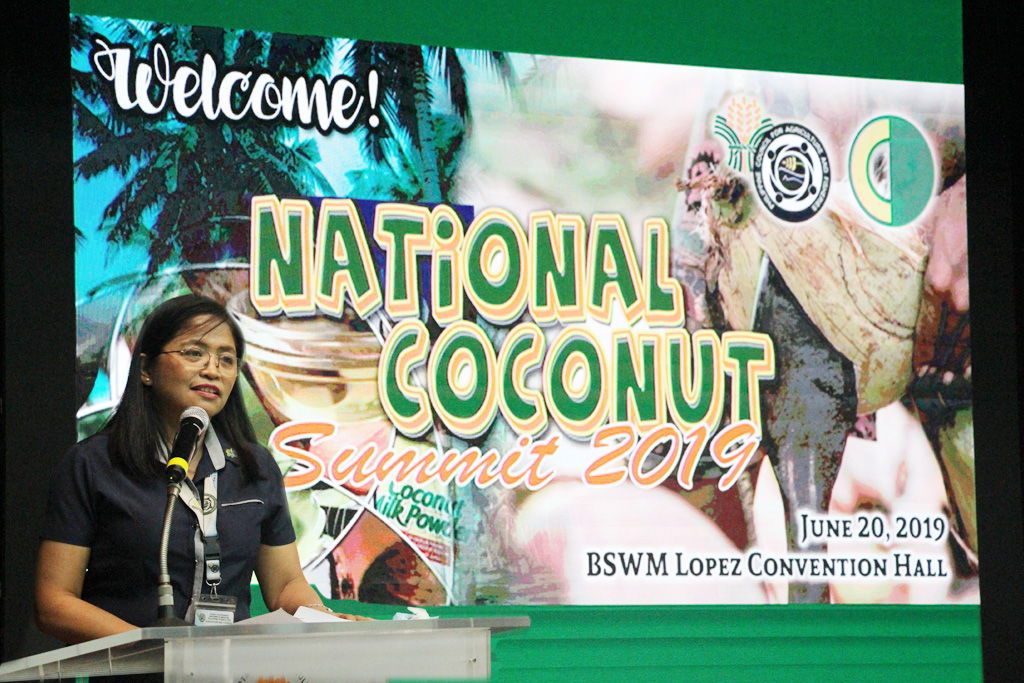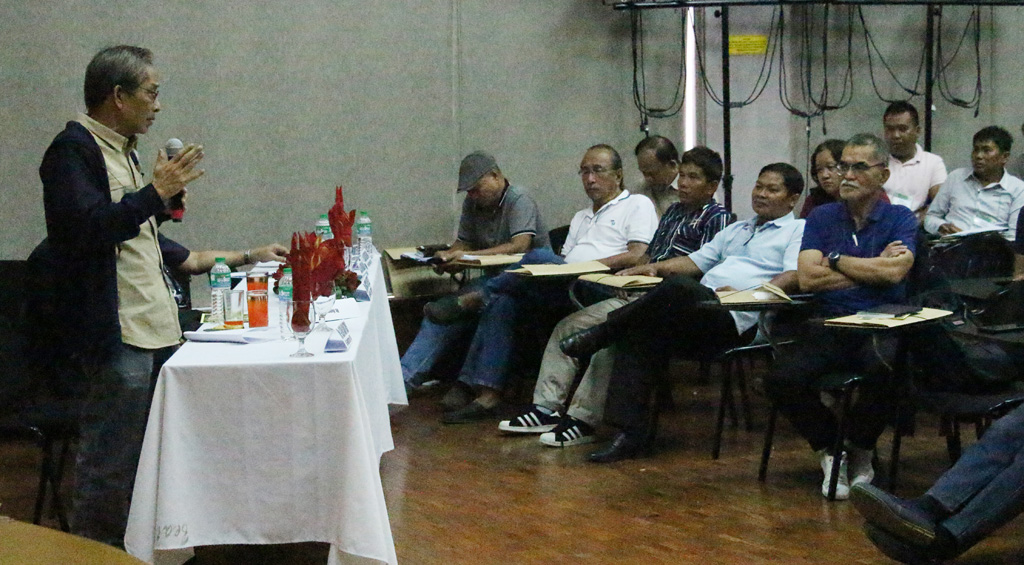
Almost 200 coconut stakeholders from the private and government sectors participated in the 1st National Coconut Summit held on June 20, 2019 at the Bureau of Soils and Water Management Lopez Convention Hall in Quezon City.
The summit, a collaboration between the Philippine Council for Agriculture and Fisheries (PCAF) and the Philippine Coconut Authority (PCA), aimed to come up with a unified and harmonized coconut stakeholders’ position on the utilization and management of the coconut levy funds.
Republic Act No. 6260 also known as the Coconut Investment Act was enacted for the imposition of the coconut stabilization levy to finance several development programs like coconut replanting, fertilization, scholarship program for deserving children of coconut farmers, research and development, establishment of a coconut farmers’ bank, and other investments.
However, the funds were diverted into projects unrelated to its original purpose, that is for the development of the coconut industry. Numerous legislative actions and proposals were filed in the past congresses for the utilization and management of the coconut levy fund.
Recently, the enrolled bill which was endorsed by the 17th Congress of the Philippines was vetoed by President Rodrigo Duterte with “a conclusion that it may have violated the Constitution and lacked vital safeguards to avoid the repetition of the painful mistakes committed in the past”.
During PCAF consultations conducted on March 19, 2019, coconut stakeholders agreed to consolidate their positions on the proposed bills of the congress, thus the realization of the 1st National Coconut Summit 2019.
“We are here because we need to unite and agree on one position! That position should be the best option for the development of the coconut industry and the organization of the coconut farmers who today are the most marginalized members of the agriculture sector”, emphasized by PCAF Exec. Director Sarah Gutierrez-Cayona during her opening remarks.
Meanwhile, PCA OIC-Administrator Glenn Santos underscored the importance of the summit. He then expressed his gratefulness for being part of the activity that focuses on “pagtalakay at pagbalangkas ng lehislatibong aksyon para sa industriya ng niyog”.
The coconut industry has been waiting for a legislative action that will finally address the serious concerns of the sector using the coconut levy fund. PCAF Interim Chairperson for the Committee on Coconut Romeo “Ka Ome” Royandoyan presented the different versions of bills endorsed by various lawmakers in the past congresses.

Afterwards, specific sections stipulated in the enrolled bill were presented, discussed and commented to come up with a harmonized and unified position of concerned stakeholders. The consensus of the body will then be forwarded to the Secretary of the Department of Agriculture for endorsement to the Office of the Presidential Legislative Liaison Officer and the Office of the President.
Among the items pointed out by Royandoyan are the following: perpetuity of the trust fund; disposition and utilization of the fund over privatization of assets; representation of coconut farmers in the trust fund committee; and the management of the fund committee under the Office of the President.
On the first item, the body agreed that the coco levy fund shall be treated as a special fund where its validity is perpetual and should not be limit to a certain period as indicated in the enrolled bill.
The next item being discussed was the disposition and utlization of coco levy assets versus the proposed privatization of the assets. The participants were unanimous that the fund must be utilized for the benefits of coco farmers and development of the coconut industry.
Also, the trust fund must include assets that should form part of the coconut levy, which have been acquired through or otherwise funded by the coco levy and even those assets under litigation.
For the representation of coconut farmers, it was proposed that representatives must be per region and not by island groupings. A coconut farmer from Zamboanga Peninsula cited that for equal representation, one factor to be considered in nominating representative is the covered area of coconut produce.
On the proposed supervision of the fund committee, the participants agreed that the Office of the President should have the sole authority in the management and administration of the fund. A provision relative to the Magna Carta of Women was also considered, wherein rural women should also be represented in the nomination of fund committee members.
The summit also invited representative from the United Coconut Association of the Philippines to report the Philippine Coconut Industry Situation in the perspective of the industry players. | JD











